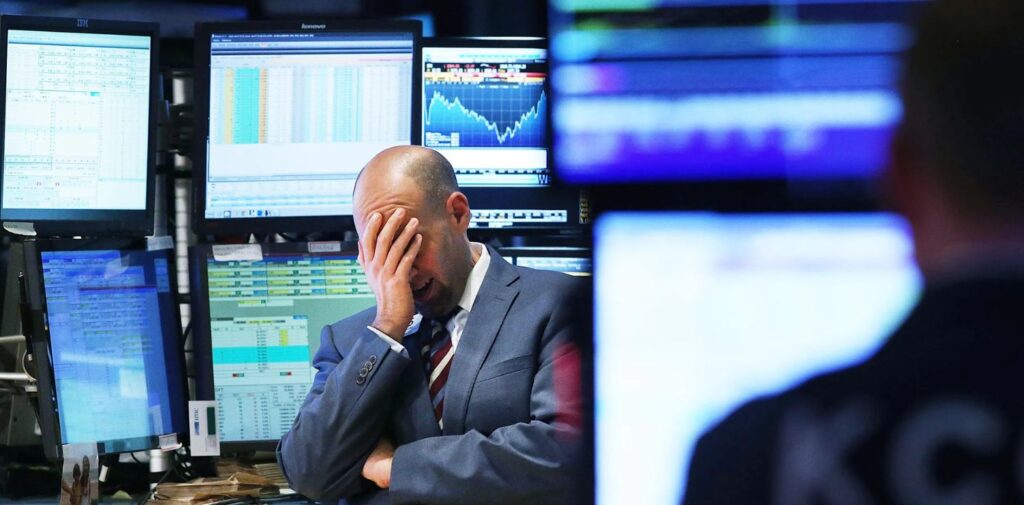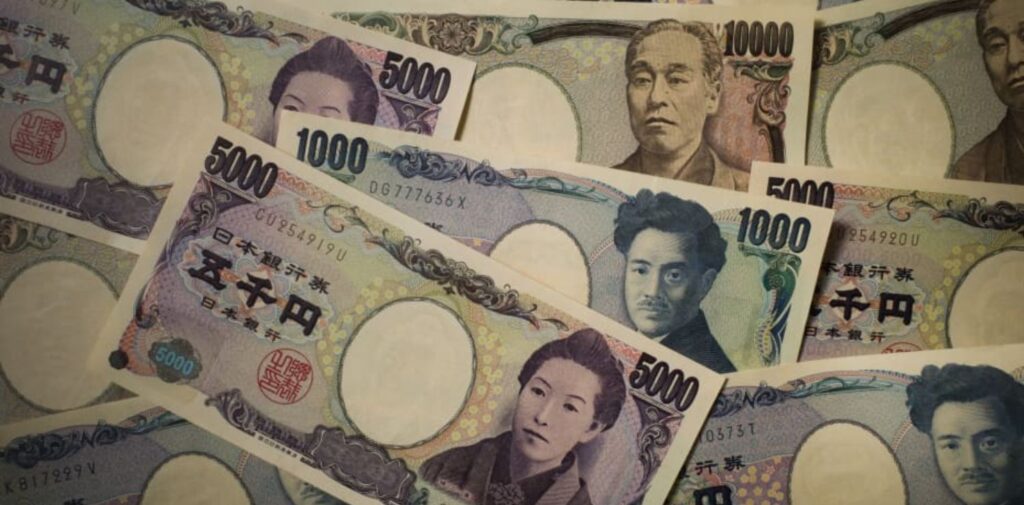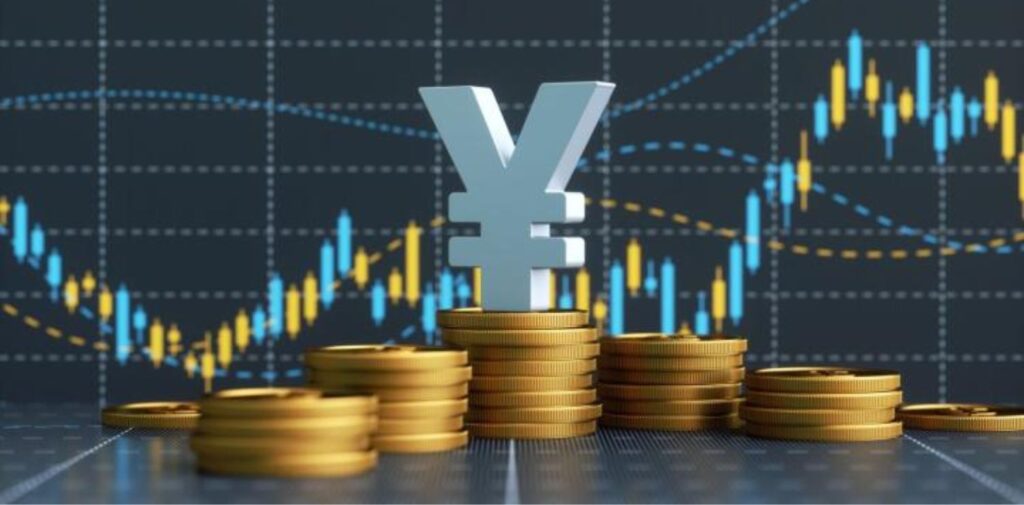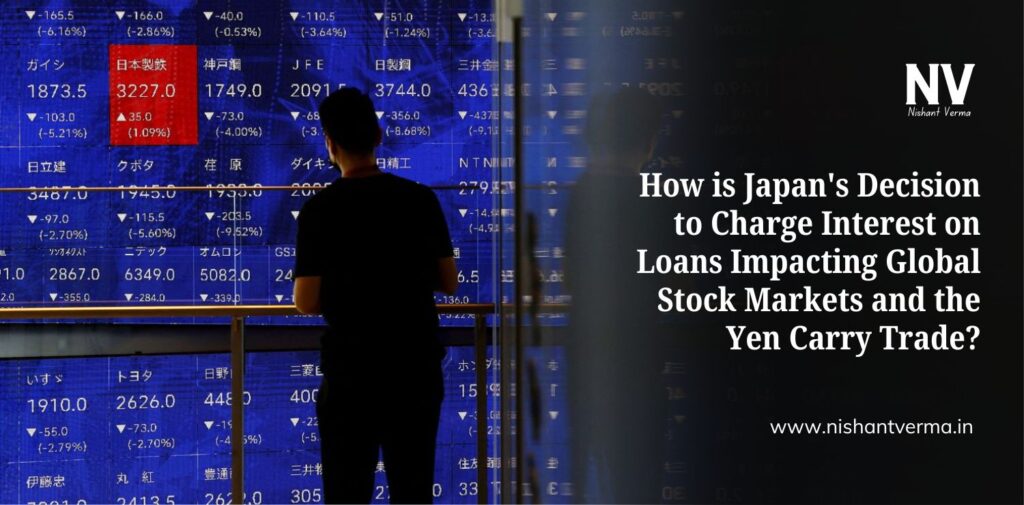The decision of Japan’s central bank to start charging interest on loans that were previously interest-free has created a significant ripple effect across global stock exchanges. This change has caused market fluctuations, influencing stock prices and the strategies of hedge funds. But why is this shift causing such widespread disruption? How does the yen carry trade factor into this scenario? Let’s delve deeper into these questions and solve the complexities of this financial phenomenon.
The Transition from Interest-Free to Interest-Bearing Loans
Why did banks decide to start charging interest on loans?
Banks, particularly those in Japan, offered loans at zero or very low interest rates to stimulate economic growth and support businesses. However, due to various economic pressures, including inflation, central banks have adjusted their monetary policies. This shift towards charging interest is a move to stabilize the economy and manage inflation.
How does this decision impact businesses?
For businesses, especially those reliant on loans for expansion and operations, the introduction of interest charges translates into higher costs. Companies now need to allocate more resources to service their debt, reducing their profitability and potentially curbing expansion plans. This added financial burden can lead to a reevaluation of business strategies, including cost-cutting measures such as layoffs or reduced investment in new projects.

The Global Stock Market Reaction
Why are stock markets reacting negatively to this decision?
The imposition of interest on loans affects company profits, which in turn affects investor confidence. Stock markets are highly sensitive to changes in corporate earnings expectations. As companies face higher borrowing costs, their future earnings projections might decrease, leading investors to sell off stocks, and causing market indices to drop.
Are there other factors influencing this market behavior?
Yes, one significant factor is the yen carry trade. The yen carry trade involves borrowing in Japanese yen at low interest rates and investing in higher-yielding assets elsewhere. When Japanese banks start charging interest, the cost of borrowing yen increases. This makes the carry trade less profitable, leading traders to unwind their positions. The unwinding process involves selling off these higher-yielding assets, contributing to market volatility.
The Role of Hedge Funds
Why might hedge funds sell their stocks in response to this news?
Hedge funds often leverage significant amounts of capital to maximize returns, and changes in interest rates directly affect their cost of capital. As borrowing costs rise, the profitability of their leveraged positions decreases. To mitigate potential losses, hedge funds may liquidate their stock holdings, which can further depress stock prices.
Is this the only reason hedge funds are selling stocks?
While rising interest costs are a primary factor, hedge funds also react to broader market sentiment and economic indicators. If they anticipate a downturn due to higher interest rates and the resultant economic slowdown, they might preemptively sell off stocks to preserve their capital.

Yen Carry Trade and Its Impact
What exactly is the yen carry trade?
The yen carry trade is a financial strategy where investors borrow yen at low interest rates and convert them into other currencies to invest in higher-yielding assets. This trade takes advantage of the interest rate differential between Japan and other countries.
How does the change in loan interest rates affect the yen carry trade?
As Japanese banks start charging interest, the cost of borrowing yen increases. This reduces the attractiveness of the carry trade since the profit margin diminishes. Investors might start unwinding their positions, which involves selling off their foreign investments and converting the proceeds back into yen. This activity can cause fluctuations in currency exchange rates and impact stock markets globally.
Broader Economic Implications
How do these changes in bank loan policies affect the global economy?
The decision to charge interest on loans is not an isolated event; it reflects broader economic trends such as tightening monetary policy and managing inflation. Higher interest rates can slow down economic growth as borrowing costs increase for both consumers and businesses. This can lead to reduced consumer spending, lower business investment, and potentially higher unemployment rates.
Could this lead to a global economic slowdown?
If the trend of rising interest rates continues globally, it could indeed slow down economic growth. Countries with high levels of debt may struggle more as servicing their debt becomes more expensive. This can lead to a decrease in global trade and investment, affecting economies worldwide.

Current Market Sentiment and Predictions
What is the current sentiment in the market regarding this decision?
The market sentiment is largely cautious. Investors are wary of the potential for a global economic slowdown and are adjusting their portfolios accordingly. This cautious approach can be seen in the increased volatility in stock markets and currency fluctuations.
What do experts predict for the near future?
Experts are divided. Some believe that the market will adjust to the new interest rate environment and stabilize over time. Others warn of prolonged volatility and economic challenges as the world adapts to higher borrowing costs. The key factors to watch will be central bank policies, inflation rates, and economic growth indicators.
Finding
The decision by banks, particularly in Japan, to start charging interest on previously interest-free loans has far-reaching implications. It directly affects businesses by increasing their borrowing costs, indirectly influences global stock markets through the yen carry trade, and impacts the strategies of hedge funds. This complex interplay of factors creates a challenging environment for investors and underscores the interconnectedness of the global economy.
As we continue to navigate this evolving landscape, it is crucial to monitor central bank policies, market reactions, and broader economic indicators. Understanding the nuances of these changes can help investors and businesses make informed decisions and adapt to the shifting financial environment. The ultimate question remains: How will the global economy balance growth and stability in the face of rising interest rates? The answer will shape the financial markets and economic policies in the years to come.




